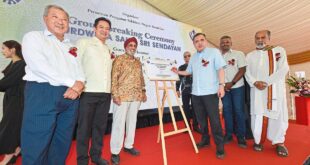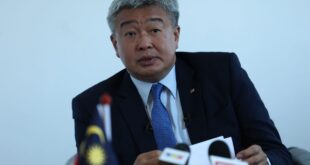PETALING JAYA: Faced with rising inflation, Malaysian shoppers are tightening their belts and focusing on essential purchases like food and groceries, says Datuk Andrew Lim, president of the Malaysia Retailers Association (MRA).
Lim highlighted that disposable income for discretionary items such as clothing and footwear has diminished due to the increased cost of necessities. Global inflation has reduced shoppers’ purchasing power, impacting the retail sector.
“While prices for items like jeans, T-shirts, and shoes have risen, consumers find themselves constrained in their ability to make multiple purchases,” he explained. For instance, traditional Deepavali shopping patterns have shifted, with individuals buying fewer clothing items.
Lim stressed the significance of the upcoming months for the retail industry, which include Deepavali, year-end holidays, school holidays, Christmas, New Year, and Chinese New Year.
Acknowledging the challenges posed by geopolitical uncertainties, including the Ukraine and Israeli-Hamas conflicts, Lim highlighted the need for more consumer confidence. To counteract the subdued market sentiment, retailers actively promote discounts and bargains to entice customers.
Meanwhile, Lim underscored the importance of the last quarter of the year and expressed cautious optimism that it may outperform the previous two quarters, albeit falling short of the prosperous conditions experienced in 2019.
In comparing October of the previous year, he noted the impact of government grants and cost-of-living assistance, which supported consumer spending.
Lim acknowledged this year’s challenging second and third quarters, reporting a 20% drop in sales compared to the benchmark year 2019, considered the pre-pandemic baseline.
He attributed this decline to the economic impact of ongoing global uncertainties, including the conflict in Ukraine and the Israeli-Hamas war.
Highlighting the contrasting fortunes, Malaysian Association of Hotels (MAH) vice-president Lim Choong Sean reported an 80% to 90% occupancy rate in the hotel industry during the 4-day Deepavali holiday.
Coastal and tourist-centric hotels thrived, while Kelantan, Melaka, and Langkawi faced challenges.
“In general, major city hotels, including those in Kuala Lumpur, Perak, Penang, and Johor Bahru, had an occupancy rate of 80%.
“Hotels near the beach, such as Desaru and Port Dickson, also reported good occupancy rates,” he added.
Lim noted that hotels rated three stars and above maintained favourable occupancy rates despite nationwide heavy rainfall.
Interestingly, he said guests gravitated towards higher-rated hotels to indulge in their facilities, with a notable preference for enjoying hotel swimming pool amenities.
 BeritaKini.biz Berita Viral Terkini di Malaysia
BeritaKini.biz Berita Viral Terkini di Malaysia





